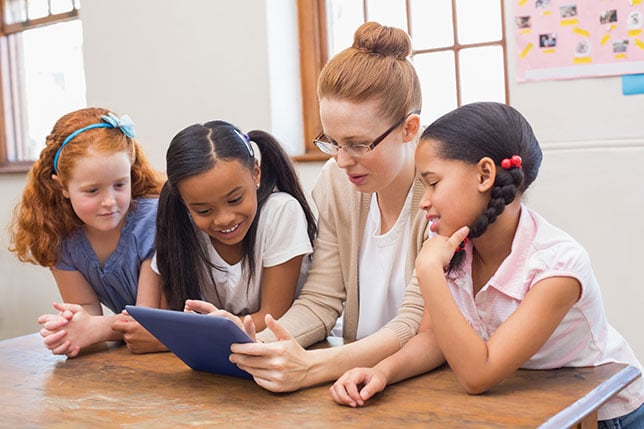 Image source: https://acerforeducation.acer.com/wp-content/uploads/banner-55.jpg
Image source: https://acerforeducation.acer.com/wp-content/uploads/banner-55.jpg
School in a post-coronavirus world will never be the same. Having no choice but to rely heavily on online learning to guarantee continuity of education in a society disrupted by the pandemic has taught lessons to more than just the students.
It is now time for teachers to reflect on the experience of socially distanced school and prepare for the upcoming year and the unique challenges it will present.
Going back to a new normal after such a defining historical event may feel a little like travelling without a road map, but teachers can at least take comfort in the three keywords they can use to orient themselves in this uncharted land: engagement, personalization, interaction.
1. Broaden your horizons
Keeping students engaged online is not at all like keeping them engaged in person. From connectivity issues making video conferences harder to follow for some students than for others, to a new set of distractions to deal with and fewer chances for teachers to read their students’ body language during lectures, online learning will present students and teachers with new challenges.
But a tech-savvy teacher has many tools in their virtual toolbox to keep interest alive and check on their students’ progress, struggles and needs. Broadening the range of activities so that online school is not just online meetings and worksheets, but also includes quizzes, educational games, group research projects, forum discussions, and many, many more possibilities is guaranteed to keep students on their toes. Many online learning platforms, moreover, come with built-in tools for teachers to monitor student activity and make the necessary corrections to their teaching methods according to the resulting data.
2. Variety is the spice of life
When it comes to personalised learning, multimedia is the answer. Making learning paths unique to each student’s interests and talents does not necessarily mean planning a different lesson for each: that would mean hundreds of times the workload.
But combining in-person lectures with the vast opportunities of Web research and media creation means that lessons can have something for everyone. Varying the medium through which new content is conveyed – assigning a reading one day and a video the next, for instance – not only keeps students more engaged, but ensures that the moment will come for each of them to learn through the medium they are most comfortable with. Offering multiple options when it comes to demonstrating your understanding of the topic is also a viable solution: one student may be able to present a much more compelling reasoning in the form of a video essay than on paper, while another may be awkward in front of a camera and prefer an old-fashioned written piece, and both are just as valid.
Just remember that personalisation is not an excuse for students not to practice the skills they are not yet so good at! It is easy to shy away from the chance of failure and take refuge in the things you know you are talented at, but teachers should encourage variety and balance so that each student can become a well-rounded person.
3. Connect people, not just computers
One common denominator of the sudden worldwide switch to online learning is that many students have found the experience lonely. That is a mistake that teachers now know not to repeat. Always keep in mind that online learning is a more solitary pursuit than regular school attendance and that while some students may thrive in self-learning, others may crave the connection to their peers and learn better from each other than from a webpage. Encourage collaborative work, moderated discussion on social media, and the use of video conferences as a way to re-establish personal connections as well as to follow lectures.
If at all possible, strive to remain available to your students for one-on-one help: connecting with the teacher is just as important a social interaction as making friends with classmates, and it is good to know that the teacher in an online or blended setting is not some elusive figure who only exists to post assignments and grade tests, but a real person you can send a quick email to anytime if you have questions.
Discover more resources with RobotLAB!



